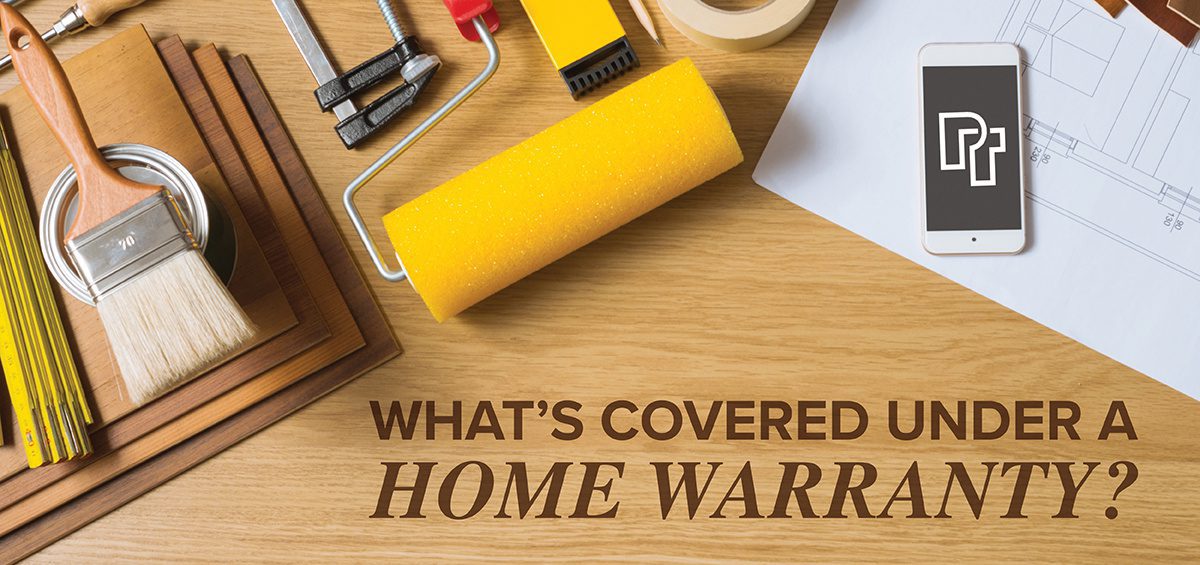Worrying about home repairs is one of the biggest burdens for homeowners. That’s why you may want to consider purchasing a home warranty. Whether you have been in your home for years or are closing on a new home, a home warranty can provide you some peace of mind.
What is a Home Warranty?
It is (usually) a one-year, renewable service contract that covers maintenance, repairs, and replacement of home systems and appliances when issues arise related to everyday use. It is not to be confused with homeowner’s insurance. Homeowners insurance is a lender-required policy that covers losses incurred during a catastrophic event such as a fire or storm. A home warranty is an optional contract that offers protection against everyday issues that may occur in your home.
Coverage costs, limits, and exclusions vary by provider and contract.
What is Covered by a Home Warranty?
Most companies offer plans that cover either appliances, systems, or both. What is actually covered varies by company and is specific to what is listed in a contract. However, the National Home Service Contract Association (NHSCA) lists systems and appliances that are typically covered. Those include:
● Systems such as electrical, ductwork, heating, interior plumbing, and water heaters.
● Appliances such as dishwashers, ovens/ranges/cook-tops, garbage disposals, air conditioning units, refrigerators, microwaves, and washers and dryers.
Some companies offer the option of purchasing add-ons to cover other systems and appliances such as lawn sprinkler systems, pools, septic systems, stand-alone freezers, and electronics.
There are some items that are generally excluded from home warranties. These include, but are not limited to,
● Structural elements such as the foundation, windows, paint, and flooring.
● Commercial-grade equipment or systems.
● Fireplaces.
● Pre-existing issues that were identified by a home inspector.
● Repairs related to neglect or improper maintenance.
● Hazardous substances.
Also keep in mind that depending on the contract, different parts of systems and appliances will be covered while others will be excluded. The best way to know exactly what your contract covers is to read it thoroughly before purchasing to ensure it covers everything you want and need it to.
While home warranties are optional, they are a good thing to have. Your home is one of the biggest investments you will make, and a home warranty helps protect that investment and your pocketbook. Be sure to talk to your real estate agent about home warranties before closing on a purchase.







